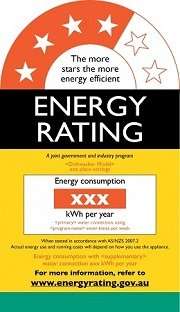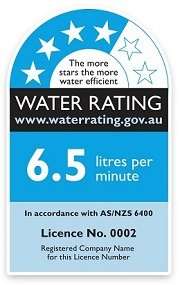Pouring cold water on energy myths

Fixated on those all-important energy ratings when buying a washing machine or dishwasher?
We've all been led to believe they are a credible guide to using our appliances more cost effectively but the reality may be a little different, according to new research findings from the University of South Australia.
UniSA PhD student Shiv Umapathi has been looking at the water-energy footprint of eco-friendly households in Lochiel Park, a residential estate which prides itself on sustainable living.
The model green village uses three different water sources – rainwater tanks, mains water and recycled water – and all homes are equipped with solar panels, resulting in an overall 64 per cent reduction of energy consumption when compared with other households.
But Shiv's research has uncovered some useful findings relating to seasonal energy use among washing machines and dishwashers.
"Over the course of 12 months, I found that both appliances were more costly to run in winter. Regardless of their energy rating, washings machines used 31 % more energy in winter while dishwashers used 12% more. This was despite these appliances being operated fewer times in the winter months," Shiv says.

"Some of the machines are energy efficient but not water efficient, and vice versa. What customers don't know is whether a washing machine or dishwasher is both energy and water efficient because those combined ratings are not available."
The other factor that people need to take into account is the temperature of the room in which the appliance is located. The machines are tested in ambient room temperatures (averaging 20 degrees Celsius) to gauge their energy ratings but these don't accurately reflect the temperature of laundries in most homes.
"In winter, it is likely that the laundry will be colder than 20 degrees Celsius in Adelaide and so the washing machine has to work that much harder to heat up the water to the required temperature. That makes it far more costly to run."
The energy use may also vary depending on other factors, such as the placement of pipes outside the house and which way they are facing, causing variations in water temperature, Shiv found.
She advises consumers to choose appliances based on water (not energy) ratings as 86 per cent of operational costs for washing machines and 58 per cent for dishwashers are attributed to water consumption.
Provided by University of South Australia



















